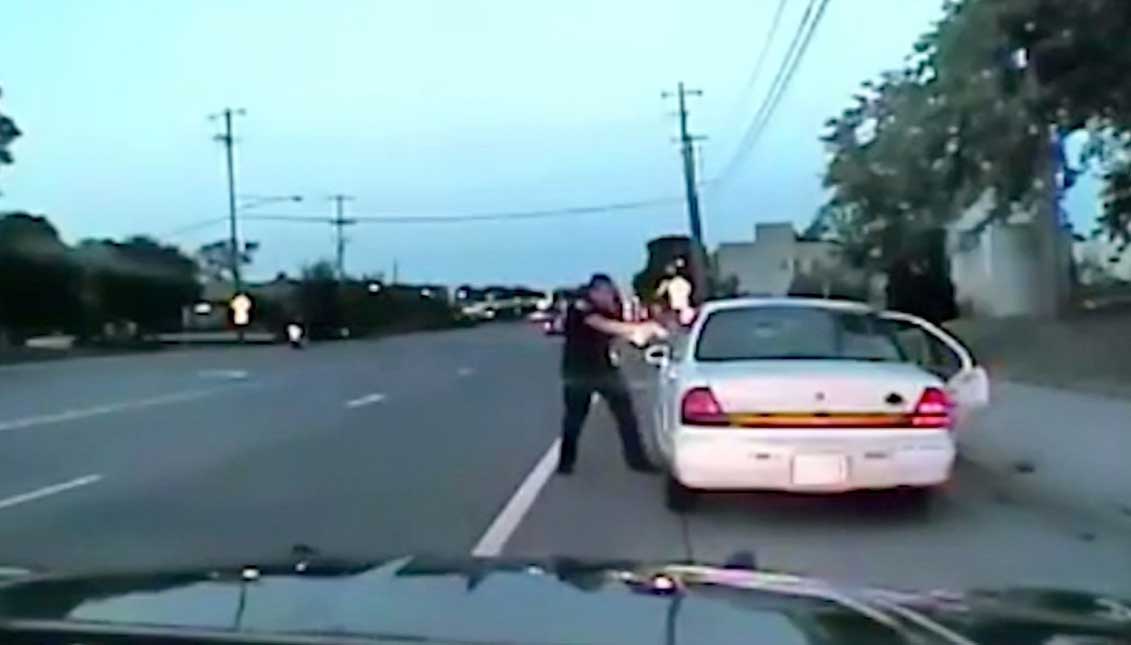
[OP-ED]: How can we lift the tension between law enforcement and motorists of color?
MORE IN THIS SECTION
The interactions between police and those who feel mistreated by them are often described as ranging from rude to angry to dehumanizing.
Here in Chicago, a city where a 2016 task-force report found that people of color had been disproportionately targeted for stops and most had negative experiences with police, most nonwhite people have a horror story.
Mine was mild and long ago -- I was a teen passenger in the car when my mother was pulled over (it was never made clear why). The police officer was horribly harsh with my tiny little mom, snapping at her to answer questions. Nothing happened after he perused her license and insurance papers. We went on our way, but it was frightening and humiliating.
A recent analysis of police body-camera footage by researchers at Stanford University found that officers consistently use less respectful language with black community members than with white community members.
“To be clear: There was no swearing,” said Dan Jurafsky, a study co-author and Stanford professor of linguistics and of computer science, in a university press release. “These were well-behaved officers. But the many small differences in how they spoke with community members added up to pervasive racial disparities.”
The small differences added up to white residents being 57 percent more likely than black residents to hear a police officer say the most respectful phrases, such as apologies and expressions of gratitude like “thank you.” Black community members, on the other hand, were 61 percent more likely than white residents to hear an officer say the least respectful phrases, such as using informal titles like “dude” and “bro,” and commands like “hands on the wheel.”
This data underscores what motorists of color have known for ages: There is a disparate penalty for driving while black, Hispanic or otherwise nonwhite.
Even more interesting is that, according to Jennifer Eberhardt, co-author of the study and professor of psychology at Stanford, their analysis found that the race of the officer did not make a difference in how respectfully they treated white or black motorists. “We get the same pattern of results regardless of officer race,” she told me via email.
This puts into question our assumption that a diverse law enforcement corps would alleviate some of the racial tensions between police and people of color.
In fact, Officer Jeronimo Yanez, the policeman who was recently acquitted in the fatal shooting of Philando Castile, a black motorist in Minnesota, was Mexican-American.
To underscore the brown-on-black violence in this case, Marisa Franco, director of Mijente, a Latino political website, said that racism killed Castile. “The fear that Officer Yanez had of Philando Castile ... is one that is taught to us and one that is prevalent in our communities. We cannot denounce him without also actively confronting [Latino] anti-blackness. It must be undone.”
To her point, in 2008 the Pew Research Center found that Hispanics were more likely than blacks to say that the two groups do not get along and that their inter-group relations are strained.
And in the case of Castile, politeness helped neither him nor Yanez find their way toward a nonlethal end to their short confrontation.
In the dashboard-camera video footage of their encounter, Yanez is very calm and polite as he greets Castile after pulling him over. Castile is equally respectful in both his words and his tone, asking Yanez, “How are you?”
Everything is light and unstrained as Yanez tells Castile he pulled him over due to burned-out brake lights. Even at the pivotal moment Castile very straightforwardly tells Yanez, “Sir, I do have to tell you, I have a firearm on me.” Yanez calmly says, “Don’t reach for it, then. Don’t pull it out.”
Things degrade very quickly from there.
We count on social science to answer life-and-death questions for us and a pressing one is whether or how law-enforcement culture overrides factors such as an officer’s race, ethnicity or car-side manner.
Until we understand this dynamic, more polite, diverse officers won’t end what feels like an epidemic of police-on-minority violence.







LEAVE A COMMENT:
Join the discussion! Leave a comment.